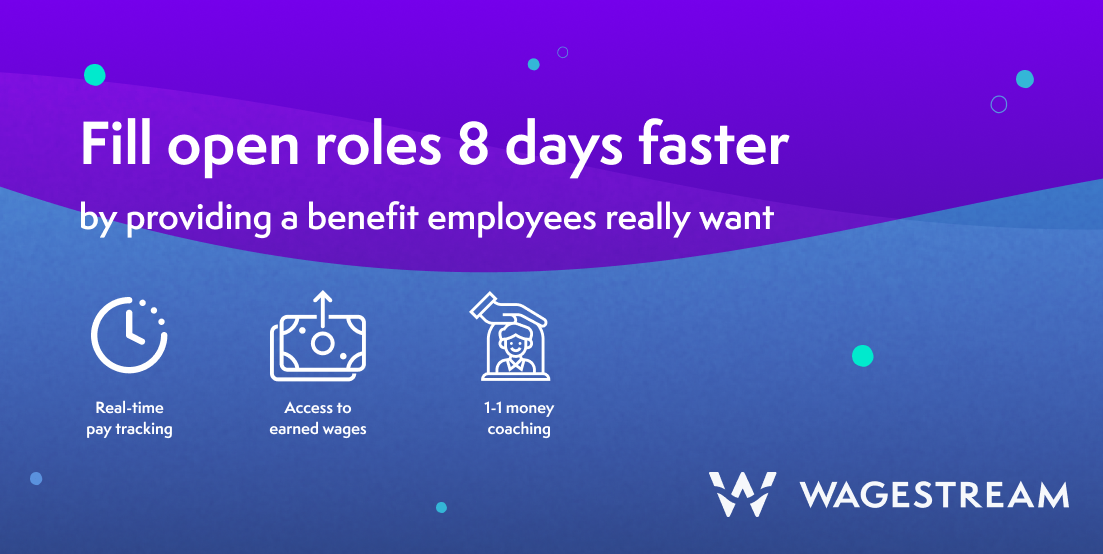

Wagestream was founded in 2018 when CEO Josh Vernon saw one of his friends get into trouble after using a payday loan to buy a fridge. Over the past 3 years Wagestream has grown to become the mission-led responsible experts in financial wellbeing, providing innovative solutions such as earned wage access, pre-pay savings and 1:1 live chat financial coaching to solve the number one concern of hospitality employees - financial stress.
Backed by social impact charities and industry bodies – Financial Inclusion Action Plan (FIAP) Social Tech Trust, Barrow Cadbury Foundation, Joseph Rowntree Foundation, Fair by Design and Big Society Capital – it’s our mission to make money simple not stressful, ensuring everyone has the tools they need to secure their financial futures. We support more than 750,000 employees across the globe at organisations such as Hungry Jack’s, Pizza Hut, Brewdog, Leon and many more.
The big shift happening at leading QSRs

What hasn’t changed in 2021? From multiple lockdowns to a battle for talent, there’s been plenty for QSRs to contend with.
One trend that’s been accelerated by the pandemic and highlighted during lockdowns and the resulting struggle to rehire, has been the importance of employee wellbeing programs to successful QSRs.
Employee experience has always mattered, but for millennials and gen Z it’s a growing requirement that their employer shows they care for their employees and also the wider community.
Why wellbeing?
The pandemic has had a disproportionate impact on workers in different industries. For those in the hospitality industry, lockdowns and restrictions have meant reduced hours and sometimes prolonged periods of not working.
A recent study by AMP found that hospitality workers are the most financially stressed in Australia, with hospitality workers 86% more stressed than the national average. This stress is costly for employees and employers.
Another study from AMP found that those severely and moderately financially stressed are ineffective at work for approximately 7.7 hours a week, and absent for a further 1.2 hours a week through sick days.
So there’s a clear business case for improving the financial wellbeing of employees, which is one of the reasons why leading employers have started implementing financial wellbeing programs that tackle some of the major obstacles employees face.
What is a financial wellbeing program?
A financial wellbeing program can take many forms. Historically these programs have been limited to seminars on superannuation and some financial literacy materials. These kinds of programs have limited effectiveness, particularly amongst casual, young employees who are establishing their money habits.
More recently, financial wellbeing programs have evolved to include innovative tech tools that can reduce the behavioural barriers that people face when trying to manage their money. These tools include:
- Real-time pay tracking to see how much has been earned at any point
- Instant access to earned wages to cover emergencies without having to borrow
- Pre-pay savings to reduce the temptation to spend and grow savings faster
- Live chat money coaching to establish good habits and stay accountable
Why do financial wellbeing programs matter?
Employee wellbeing is integral to all businesses, but in customer-facing roles like QSRs this is particularly true. An engaged workforce increases productivity and customer satisfaction. In 2020, Hungry Jack’s started offering Wagestream, a financial wellbeing benefit that provides financial wellbeing tools through an app for employees.
“At Hungry Jack's, we sell burgers, but we are in the people business, so it’s really important for us to ensure we have a happy, healthy and engaged workforce,” says Jenny McKie, Chief People Officer at Hungry Jack’s.
And when it comes to tackling the current problems QSRs are facing in terms of recruiting, having attractive benefits that make a difference can help businesses recruit faster.
An analysis of over 900 retail and hospitality job ads on indeed.com found that those listing Wagestream as a financial wellbeing benefit were filling open roles 27% faster than their competitors.
“These days, employees are looking for more than just pay. They want real benefits – things that make a real difference to their daily lives and make things easier for them in general. That’s why we’ve partnered with Wagestream,” says McKie.
Connect Now
Other Articles

Mad Mex: focusing on wellbeing to boost recruitment

How QSRs can tackle cost of living crisis

Evolving wellbeing programs: Is it more effective to focus on prevention rather than cure?

Could wellbeing initiatives help you win the war for talent?

How a financial wellbeing program has helped Honest Burgers recruit faster and fill more shifts in the UK

How QSRs can create flexibility for customer-facing workers
